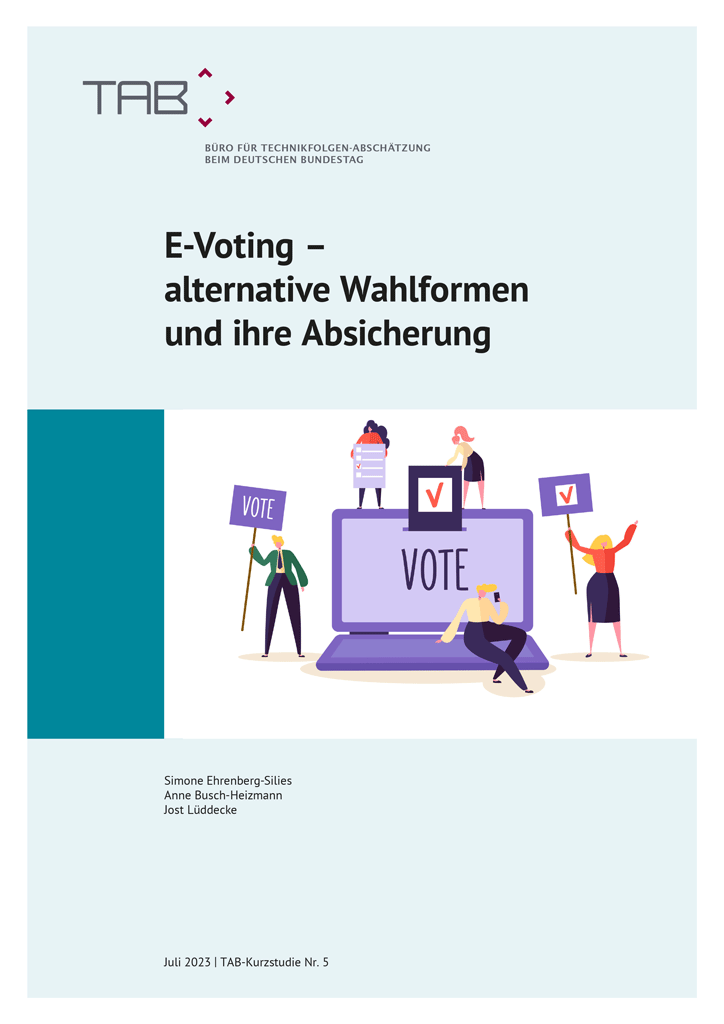E-Voting - status quo and perspectives for Germany
A new short study on Internet voting provides an overview of the advantages and disadvantages of this new form of voting compared to ballot box and postal voting. The analysis includes three case studies on Estonia, Switzerland and Norway, where there is already experience with online voting in local, regional, national or european elections.
Internet voting is the use of digital terminals to vote remotely, e.g. from home, i.e. in environments where direct supervision by election officials is not possible. E-voting is currently used for elections in only 14 countries. Only half of them are democracies.
The high technical and security requirements for e-voting, on the one hand, and the comparatively low benefits in terms of achieving stated goals such as higher voter turnout, on the other, are likely to be one reason for the low uptake worldwide.
The introduction of e-voting in Bundestag elections is opposed by the current interpretation of the electoral law principle of publicity by the Federal Constitutional Court, which requires the electronic voting process to be comprehensible to the general public.
Other arguments against the use of e-voting in Bundestag elections in the near future are the increased threat of cyber-attacks and the fear that accusations of election manipulation would be difficult to dispel due to the lack of possibilities for public verification in Internet elections.
TAB Short Study No. 5 provides an overview of the advantages and disadvantages of e-voting compared to conventional voting procedures, i.e. voting in person at a polling station or by postal vote. It examines the legal, infrastructural and social requirements for e-voting in Estonia, Switzerland and Norway, as well as the exact procedures for e-voting in practice in these countries. It also focuses on the social and political implications of the introduction of e-voting. The study concludes with a scenario-based outlook on the possible further development of e-voting in Germany.
The main findings s are briefly presented on the project page.
29.09.2023
Download und further information
- TAB-Kurzstudie Nr. 5 (full text only in German)
E-Voting – alternative Wahlformen und ihre Absicherung (PDF)
doi:10.5445/IR/1000162698 - Project page E-Voting
- Further TAB short studies (in German only)

